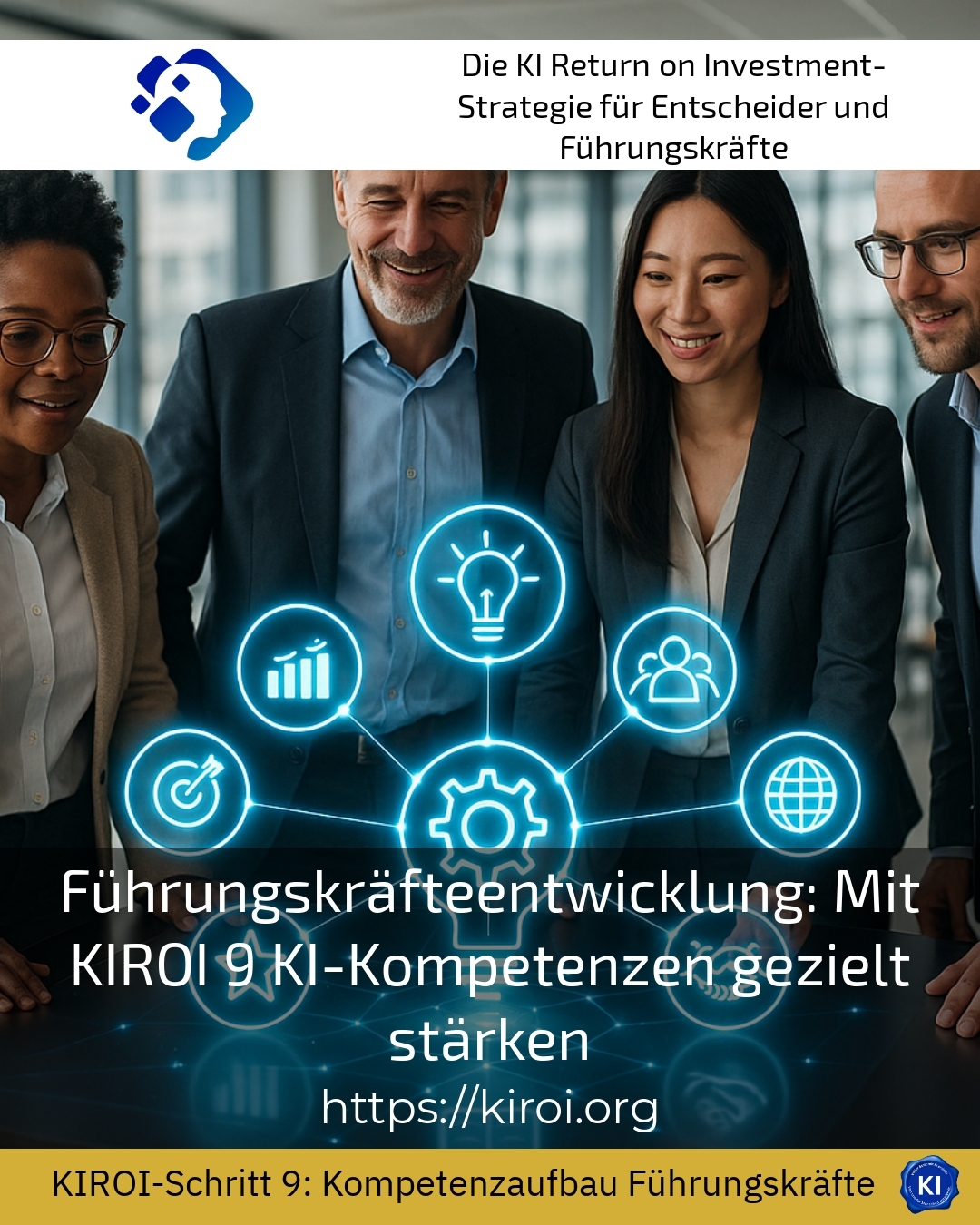Today more than ever, management development is a key component of sustainable corporate success. Many companies recognise that traditional training alone is not enough. Instead, they are focusing on holistic approaches that strengthen individual skills in a targeted manner and at the same time advance the organisation. Particularly in the context of new technologies such as artificial intelligence, management development takes on a new dimension. This is not just about knowledge, but about the ability to actively shape change and lead teams safely through the transformation.
Modern methods of leadership development
Modern management development combines various learning formats. These include seminars, workshops, digital learning modules and individual coaching. Approaches that combine theory and practice are particularly effective. This means that managers not only learn, but also apply what they have learnt directly in their day-to-day work.
A practical example: A multi-stage learning programme was developed for division managers in a manufacturing company. It consisted of online modules, face-to-face workshops and peer coaching. After each module, the participants received practical tasks that they could apply in their day-to-day work and reflect on in the next module. This created a continuous learning process that was directly integrated into their daily work.
Another example comes from the healthcare sector. Here, managers were supported through mentoring and regular feedback. Experienced colleagues served as sparring partners and helped to reflect on decisions. This not only promoted trust, but also the ability to master complex situations.
A third example can be found in the retail sector. Here, a special management development programme was introduced that was tailored to the needs of young managers. The participants received targeted training in communication, conflict management and leadership. This enabled them to demonstrably improve their leadership skills.
Leadership development with KIROI 9: Practical approaches
Individual needs analysis and targeted skills development
A central step in management development is the needs analysis. It shows which competences are already available and where knowledge and skills still need to be specifically promoted. This allows individual development plans to be drawn up that are tailored to the manager in question.
In the logistics sector, management development helps to utilise AI algorithms in a targeted manner. This allows transport routes to be organised more efficiently and costs to be reduced. Managers learn how to integrate digital tools into their daily work and thus optimise processes.
In the energy sector, the focus is on digital control systems. Here, managers learn how to use automated analyses sensibly. This helps to use environmental resources more sustainably and minimise operating costs. Management development helps to expand technological skills and strengthen confidence in dialogue with technical experts.
In the financial services sector, the focus is on developing secure AI-supported decision-making processes. Managers are empowered not only to ensure that regulatory requirements are met, but also to take ethical and social aspects into account when dealing with AI. Management development helps to systematically build up these competences.
BEST PRACTICE with one customer (name hidden due to NDA contract) A specific management development programme was introduced at an energy supply company to strengthen AI skills. Managers were able to expand their technological skills through targeted coaching and practical application scenarios. This promoted trust in the exchange with technical experts and created an innovation-friendly corporate culture. Participants reported that they felt more confident in dealing with new technologies and were better able to lead their teams through the transformation.
Active support and sustainable learning processes
Leadership development is not a one-off event, but a continuous process. Regular reflection, feedback and practical tasks ensure that what has been learnt is firmly anchored. Coaching elements and reflective learning steps are particularly valuable.
An example from the automotive industry: a management development programme with regular coaching sessions and practical tasks was carried out here. After each module, the participants were given specific tasks that they had to implement in their day-to-day work. The results were reflected on and discussed in the next module. This resulted in a continuous learning process that was directly integrated into daily work.
Another example comes from the education sector. Here, managers were supported through regular feedback and reflection. After each module, the participants were given specific tasks that they had to implement in their day-to-day work. The results were reflected on and discussed in the next module. This resulted in a continuous learning process that was directly integrated into daily work.
A third example can be found in the healthcare sector. Here, managers were supported through mentoring and regular feedback. Experienced colleagues served as sparring partners and helped to reflect on decisions. This not only promoted trust, but also the ability to master complex situations.
My analysis
Management development remains an indispensable component of future-orientated HR policy. The combination of coaching elements, reflective learning steps and targeted practical tasks in particular makes this approach valuable for companies in different sectors. Companies that invest in leadership development increase their chances of promoting internal talent and preparing for challenges such as digital transformation or agile working environments. Leadership development effectively supports this process by actively supporting managers and providing them with impetus for sustainable learning. This makes leadership development a real skills booster.
Further links from the text above:
How can leadership development succeed? - Methods, topics and concepts
Leadership development: Comprehensive guide - Haufe Akademie
Leadership development in the age of AI
For more information and if you have any questions, please contact Contact us or read more blog posts on the topic Artificial intelligence here.















